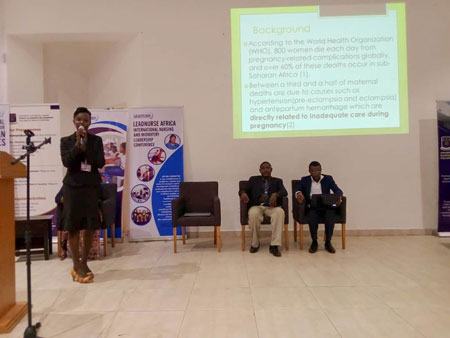Social Media and Health
Access to mass media and emerging technologies (e.g., cell phones, the internet, and social media) is a social determinant of health (Healthy People.gov, 2014) that has been shown to profoundly influence health outcomes. Particularly in Africa, where women in rural settings with limited access to care are most vulnerable to maternal mortality and other pregnancy-related morbidities (Akowuah, Agyei-Baffour, & Awunyo-Vitor, 2018; Thaddeus & Maine, 1994), mobile phone access can be an important and life-saving health determinant.

Midwife & Founder of WaCHAG-Ghana, Ruth Sally Kodam at the 2nd International Nursing and Midwifery Leadership Conference in Accra, Ghana. Presenting oral abstract “Using Technology to Decrease Maternal Mortality: Bridging the Patient/Provider Gap”

Map of Ghana showing the patient/provider gap represented on the WhatsApp platform, compared to physical, in-country reports.
According to the 2018 Global Digital suite of reports, (Damian Radcliffe & zdnet.com, 2018; We are Social, 2018) Africa has seen the fastest growth of internet users in the last few years, with internet users across the continent increasing by more than 20 percent year-on-year. Cell phone technology is at the forefront of innovation, and the importance of technology in healthcare is becoming increasingly evident. At the forefront of this surge is social media, particularly WhatsApp and Facebook.
In the Anto-Ocrah laboratory, we explore how mobile phone technology and social media are being used to bridge the patient/provider gap in healthcare access. We also use social media platforms to survey and get reactions from our target populations on relevant health topics.
Projects
- Mobile Phone Ownership and Health Outcomes amongst Post-Partum Mothers in Malawi
- Bridging the Patient/Provider Gap for Ghanaian Women of Reproductive Age
Collaborators
- David Adler
- Joseph Lanning
- Tiffany Mark
- Ryan LaTulipe
- Ruth Sally Kodam, founder, Women and Children Health Advocacy Group in Ghana